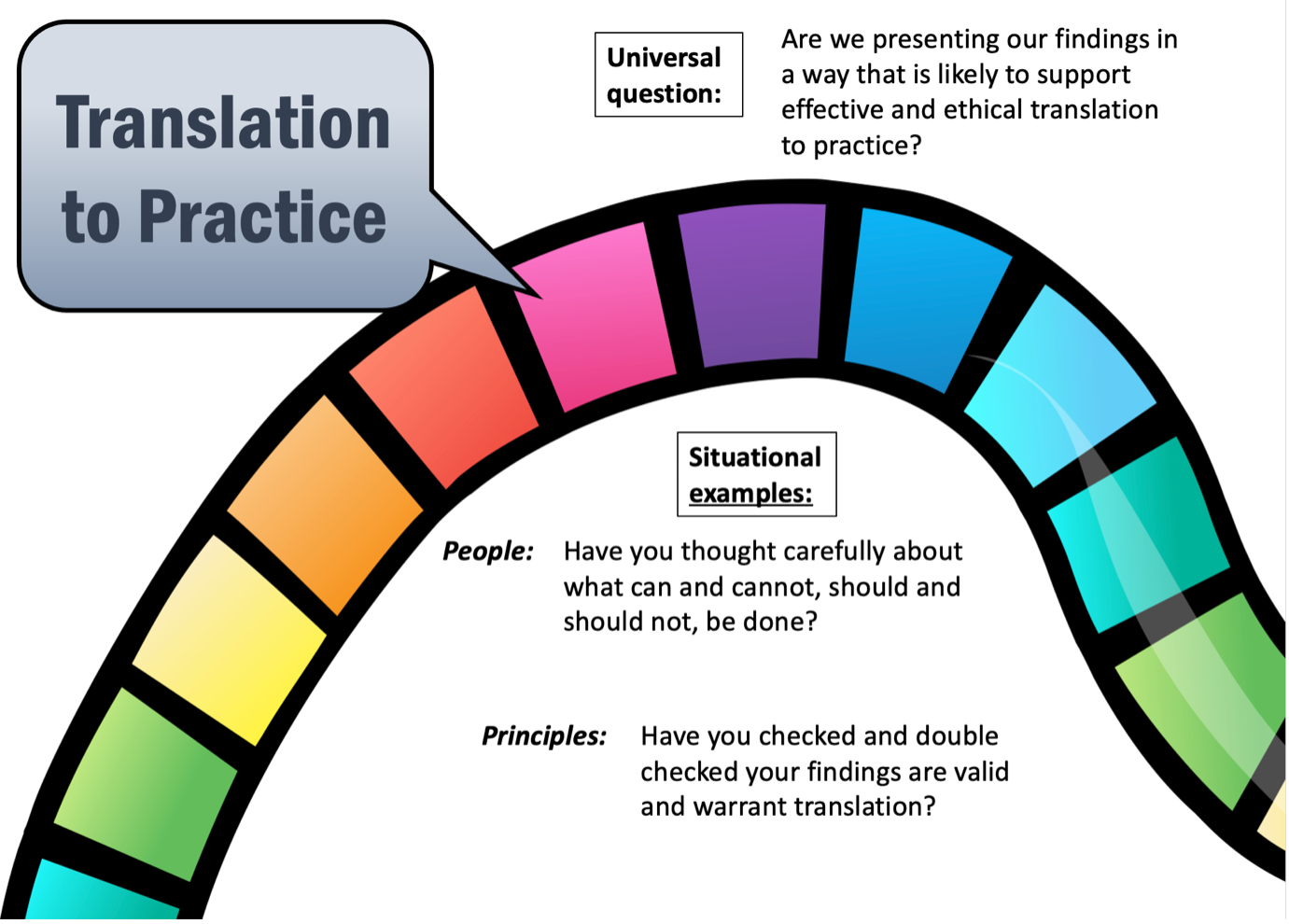|
Stage 11 TRANSLATION TO PRACTICE |
Knowing if and how your research is being used is key to demonstrating impact. Your relationship with key partners and other networks, along with strong dissemination tools, will enable practitioners and policy makers to access and use insights from your study. We can draw on insights from implementation science and practice to ensure evidence-based programmes are embedded and sustained. |
|||
|
|
||||
|
Being alert to ethical dilemmas |
||||
|
What and who will help us translate research to effectively shape policy and practice in different global contexts?
|
Supporting considerations:
|
|||
|
Working towards solutions |
||||
|
Place |
People |
Principles |
Precedent |
|
|
Prioritise a place-based lens when thinking about translation. Ensure that solutions that are suggested are meaningful, ethical and feasible in the local context. Advocacy for ethical translation is a key role for research teams. Ensure that risks for misapplication in the local context are considered, transparently outlined, critiqued and planned for. These risks may be short term or long term. Both need to be addressed to prevent legacy issues arising that may impact the community and your research reputation. |
Nowhere is local knowledge more important than in the translation stage of the research journey. Consult widely and deeply with local stakeholders. Listen and learn. Think carefully about what can and cannot, should and should not, be done. Be careful to ensure that translation is wanted. Be open to new translational pathways that are place-based. . |
Do no harm. This is the key principle of translation. Check and double check that your findings are valid and warrant translation. Know that this is where ‘impact’ comes to life, for good or for ill.
|
Seek input from colleagues in the global academic village who may have experience relevant to the translational phase. Do not waste the time or resources of a local community on a solution that has been tried and failed elsewhere (unless of course the context is different). |
|
